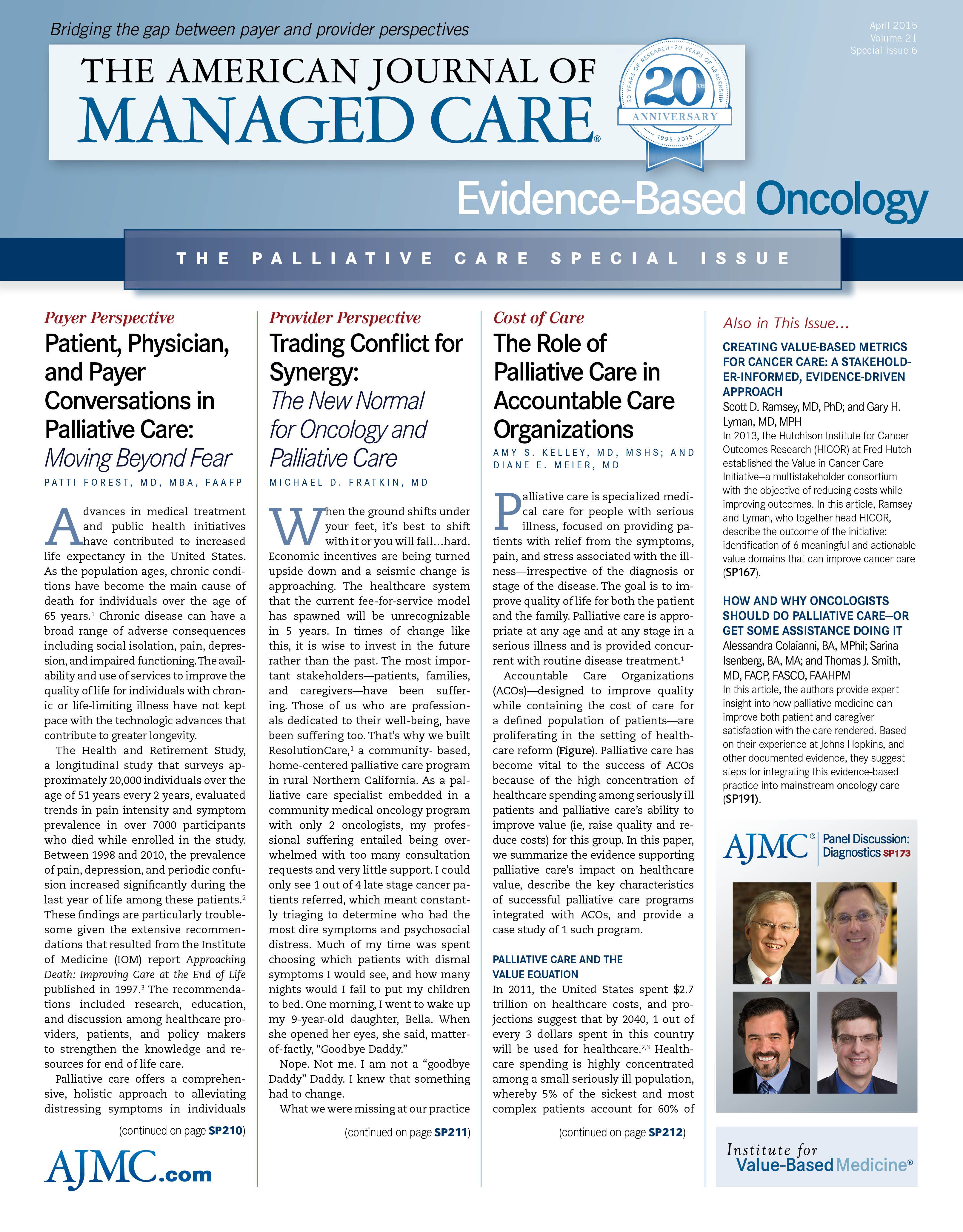- Center on Health Equity & Access
- Clinical
- Health Care Cost
- Health Care Delivery
- Insurance
- Policy
- Technology
- Value-Based Care
NCCN 2015: Reviewing the Past to Build the Future
The 20th Annual Conference of the National Comprehensive Cancer Network (NCCN) in Hollywood, Florida, offered an opportunity to take stock of the profound advances in the standards of care for a number of cancers over the past 2 decades. During this period, our expectations about the treatment and prognosis of many cancers have been upended by our growing understanding of small molecules, molecularly targeted therapeutics, monoclonal antibodies, and immunotherapeutic technologies.
Some of the most extraordinary of these advances have occurred in the care of patients with blood-based cancers. Breakout sessions on chronic myelogenous leukemia (CML), chronic lymphocytic leukemia, and multiple myeloma (MM) illustrated the importance of targeted therapeutics, monoclonal antibodies, and innovative combination therapies in the treatment of these diseases. For CML and MM in particular, the new therapeutic approaches have dramatically improved survival rates and completely altered the standards of care for these diseases in ways that were unimaginable 20 years ago.
Breakout sessions on the care of patients with breast cancer, small cell lung cancer, non-small cell lung cancer, and ovarian cancer highlighted our marked progress in the care of patients affected by these diseases. Many of these sessions focused on risk-adapted strategies for best utilizing surgery, novel radiotherapeutic approaches, adjuvant and neoadjuvant chemotherapy, biologically targeted agents, and use of monoclonal antibodies to improve clinical effectiveness and limit toxicity to patients. One highlight was a primer for patients on the biology of evolving immunotherapeutic technologies. Issues of survivorship and therapy-related toxicity were also addressed through sessions on fertility preservation and prevention of treatment-related cardiac toxicity.
In addition to providing an excellent foundation for better understanding the biology and the clinical standards of care for managing many patients with cancer, this meeting was striking in that the NCCN highlighted the importance of addressing issues of value, ef ficiency, and the need for systemic change in how we approach the evolving healthcare system. In the post Affordable Care Act world, it is not enough to talk about cancer treatment without entering into a broader conversation about how to ful l the challenges of healthcare reform and ensure the sustainability of our care delivery system. This topic was addressed directly by Robert Carlson, MD, in his keynote address, “20 Years of Improving the Quality, Effectiveness, and Efficiency of Cancer Care,” and in a roundtable discussion on improving cancer care and value-based decision making. NCCN leaders made it clear that it was not enough to talk about best practice: it must be discussed in the context of the broader national issue of value delivery in cancer care.
EBO
Part of the challenge the NCCN faces, in addition to ensuring that the clinical practice guidelines are current, is ensuring their continuing relevance as a tool for enhancing value delivery in healthcare. Issues of how best to exercise stewardship of an increasingly expensive armamentarium of novel cancer therapeutics, and how to ensure that those practicing in resource-limited settings are able to offer effective care, are among the challenges facing the NCCN. The NCCN Practice Guidelines in Oncology represent a robust set of tools that assist in the care of patients whose treatment choices are increasingly complex. The 20th Annual Meeting was an opportunity both to celebrate the great achievements of the past 2 decades and to contemplate the enormous tasks that lie ahead.

Specialty and Operator Status Influence Electronic Health Record Use Variation
January 22nd 2026Operators demonstrated specialty-specific differences in electronic health record efficiency, timeliness, and after-hours use, highlighting how workflow and training shape documentation behaviors across medical disciplines.
Read More

